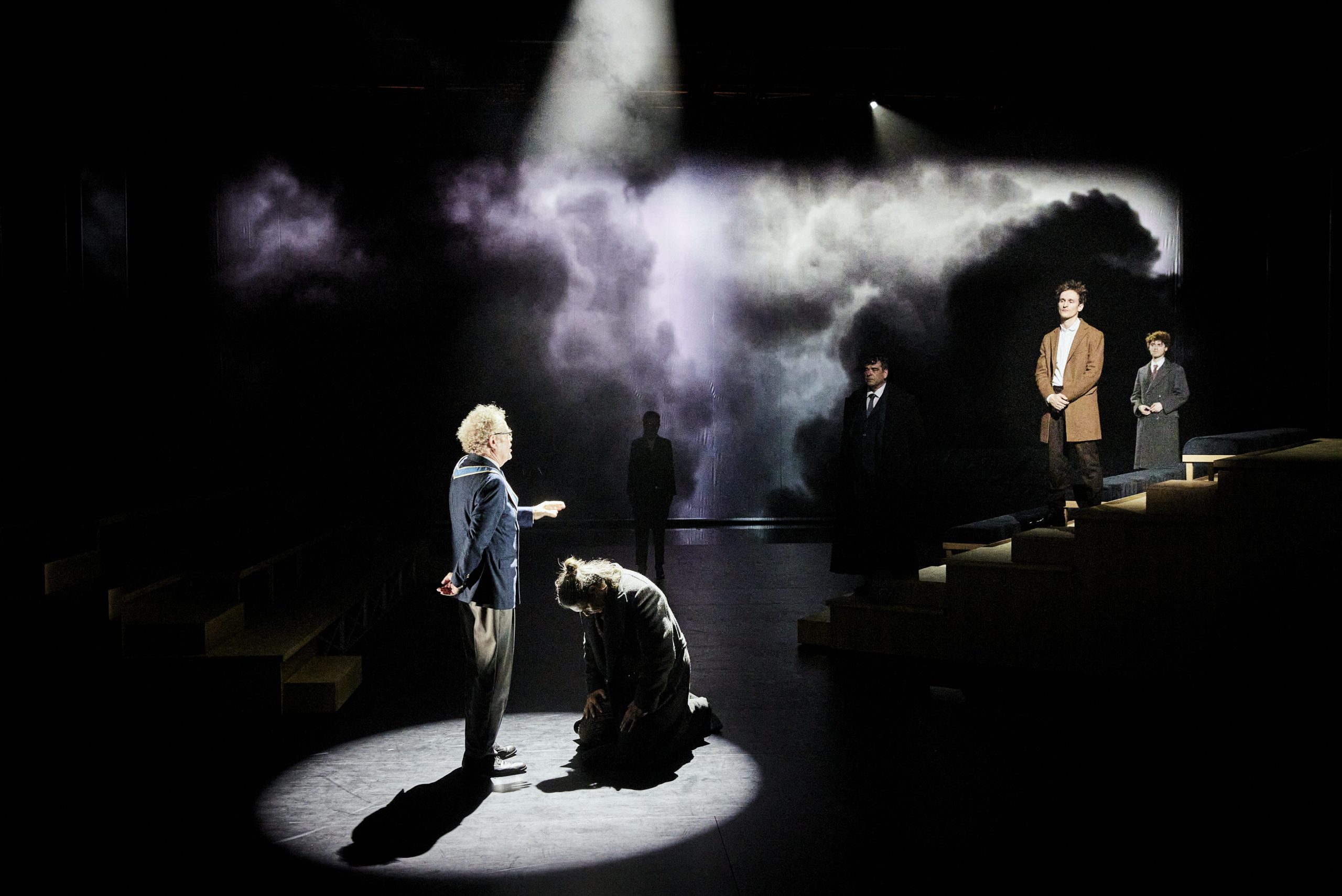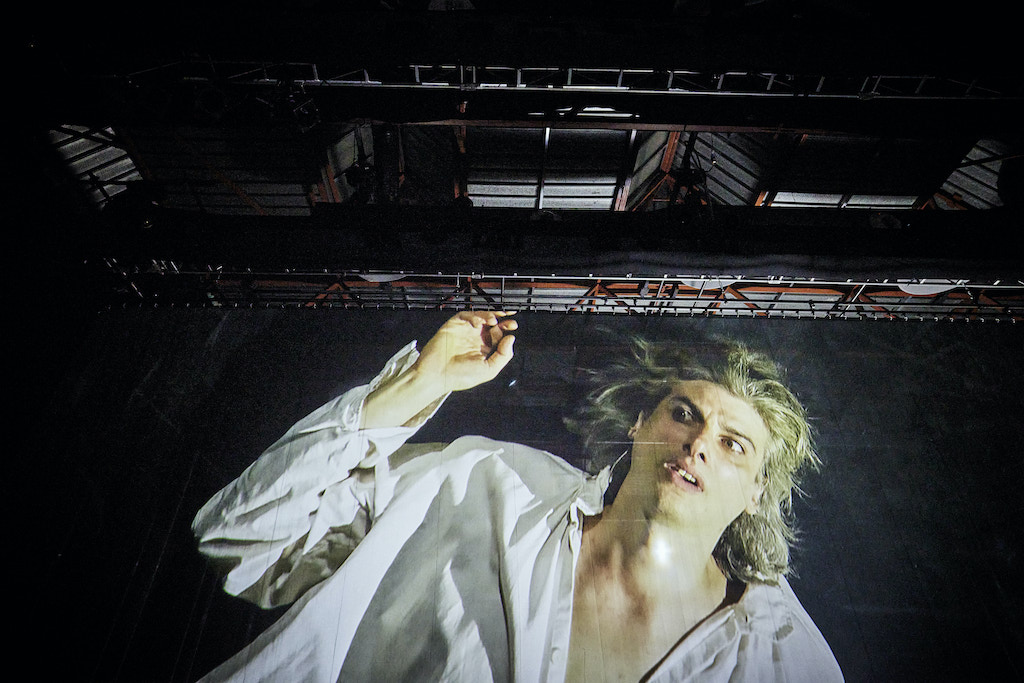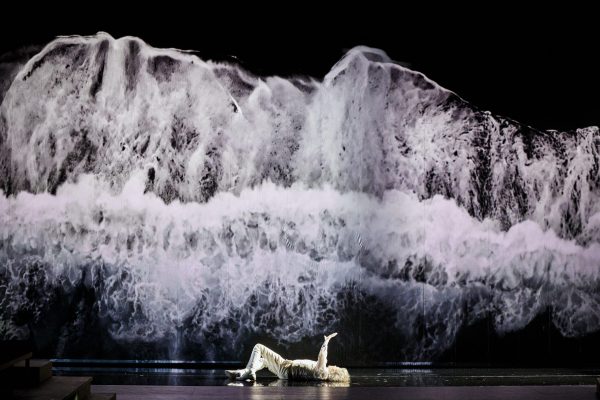Director Christophe Rauck tackles one of Shakespeare’s most poignant plays on the theme of power and its excesses. The true story of King Richard II, whose youth and inexperience act like poison, alienating him from the people and from the issues of responsibility. A golden role for the talented Micha Lescot who radiates in this staging orchestrated like a sulphurous film noir.
A king’s distress
© Christophe Raynaud de Lage / Avignon Festival
–
Richard II recounts the last two years of the life of a king whose reign began at the age of 10 when his father Edward III died in 1377. He abdicated at the age of 32, at the end of a reign as troubled as fascinating. The financial situation of the kingdom is critical, England has lost most of the provinces conquered in France and the incomes of the nobility, of the whole country, are diminished. It was Richard’s uncle, Jean de Gand, who therefore governed in his place, but it was not long before he got rid of his uncle’s too present tutelage to govern himself, and exiled his cousin Henri de Bolingbroke, the Duke of Lancaster. The play begins at this point, when King Richard decides to separate himself from the tutelage of his uncle and curtly exile his first cousin. This speed to cut to the quick, which will also lead him to raise taxes and levies to pay off the debts of the country, will lead the young king to cut himself off from the nobles and the people, getting drunk on power and authority. , facing a declared enemy, Bolingbroke, who will return with a strong army to depose his cousin.
Contemporary resonances

© Christophe Raynaud de Lage / Avignon Festival
–
From this dizzying work on power and the resulting madness, Christophe Rauck strikes a very contemporary echo by linking this intoxication of political governance to the situation of our current democracies, with elites disconnected from the populations for which they are supposed to govern. . Micha Lescot, prince of snow, elegantly dressed in a dandy costume and immaculate shoes, aerial acrobat, seems to have emerged straight from a Tim Burton film. On the other hand, the figures surrounding it are in black or gray, in a lighting filtered by the tulle which gives the whole a cinematographic and unreal look. Facing the actor with the elastic and slender silhouette, Eric Challier’s Bolinbroke is majestic and massive, a mask of iron and earth that receives like an outrageous slap his cousin’s order of exile. The contrast between the two men of the same stature here, the first whimsical and seductive, the second elusive and serious, is striking. But Richard is king and it is therefore his title that justifies the power of life and death over all, with the agreement of God. Despite the learned advice of old Uncle Jean, to whom Thierry Bosc lends his imposing presence, cavernous voice and immortal stature, the young king does as he pleases and sends all obstacles into the clouds, seeming to live than in heaven.
Dark movie

© Christophe Raynaud de Lage / Avignon Festival
–
Alain Lagarde’s scenography and Olivier Oudiou’s lights design Kafkaesque trial spaces, with mobile tiers that represent the king’s court or parliamentary assemblies. The lights thus scan the play area in a contrasting manner, giving the show the look of a film noir, from the start of which we have all the keys leading to tragedy. If the first part, before the dismissal of Richard, seems a little fixed, the emotion gains in power in the second part, in particular during the trial which sees Richard II, playing his last swan song, abandoning to his rival the power of govern. Micha Lescot is imperial there, alternating between false and real pain, trying to save face by switching, like Hamlet, into feigned or real madness. And it is at this moment that the piece touches us the most. Populated by characters who all try to betray by reconstituting alliances, played by seasoned actors who play several roles and we must mention the beautiful performance of Murielle Colvez in the role of a demonic mother who handles both hypocrisy and desire on the other hand, the piece wonderfully describes, in the translation by Jean-Michel Déprats, the devastating solitude of an unshared power and the danger of a title that anesthetizes a function. Richard clings to his title like a toy with an unconsciousness, a cynicism, which will lead him to death. An enlightening reflection on how those who govern us use their power.
Helen Kuttner
–


